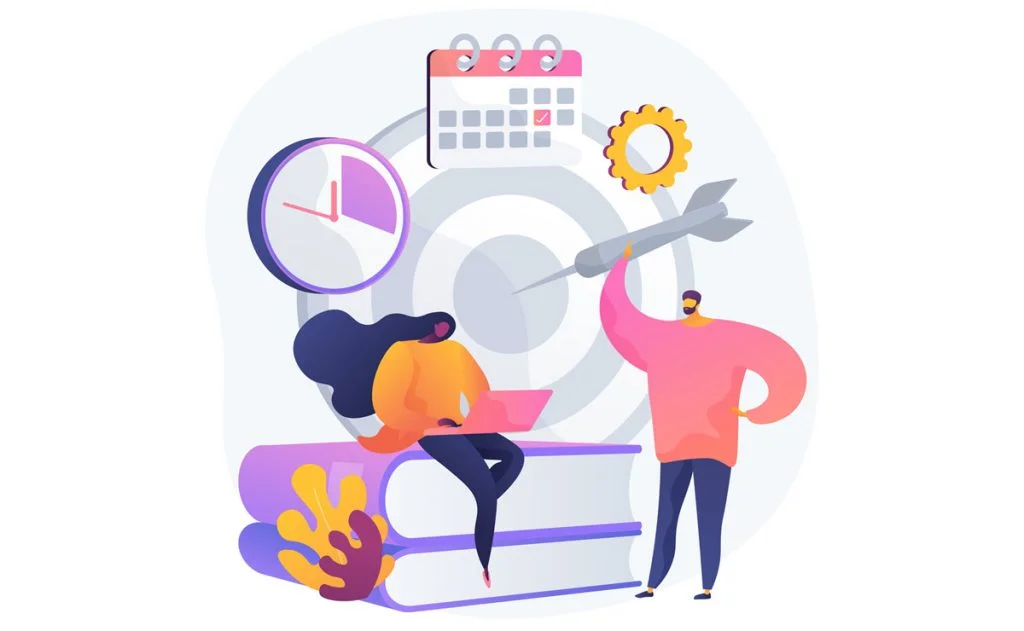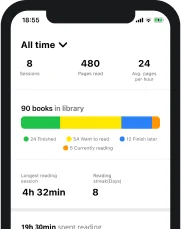We all do research on various topics several times a day, many times without even realizing we are doing it. Whether we’re searching for a new recipe or looking to find out how to do something, regardless of the complexity of the task, more often than not, we turn to the almighty Internet for answers rather than searching for them in specialty books.
While this may seem to work just fine in many cases, what we usually don’t realise is that we’re actually missing out on a lot of information and make the active choice of speed over accuracy or complexity.
Let’s take a closer look at this “books vs Internet” debate and find out which one is actually better for our research needs.
Which Is Better for Research, the Internet or Books?
Well isn’t this a question for the ages? And unfortunately, the answer is yet to be found.
Even though many have tried to find a definitive answer, it all seems to come down to a series of factors:
- The topic you’re researching
- How much time you have
- How in-depth you need your research to be
Obviously, both reading books and Internet research have a series of benefits and disadvantages when compared to the other. Let’s have a closer look at these pros and cons.
Reading Books for Research – Benefits and Disadvantages
Benefits
- While the Internet has been around for decades, books have proven their value for centuries. So one of the first and most compelling arguments for reading books is that they have been used for hundreds of years as learning tools.
Books have played a tremendous role in the development of civilization and have been used for learning by people who pushed the technology ahead time and time again. One would argue that if books were good enough to shape Nikola Tesla into the genius he was, they should be good enough for us. - Despite the unfathomable amount of information available on the Internet today, books tend to better cover the subjects you’re researching.
- Books are timeless and convenient. You don’t need any device, battery or a connection in order to open a book and start learning about the topic you’re interested in.
- Books are easy on the eyes, which would allow you to spend a lot more time researching whatever you need to learn without any strain on the eyes.
Disadvantages
- It takes longer to do research using books than it does using the Internet
- Books don’t have a search function, so finding specific information using keywords is impossible
- The cost of using books for research can turn out to be quite high, depending on the topic
- Books are harder to carry around, so you might not always have access to them from anywhere
Using the Internet for Research – Benefits and Disadvantages
Benefits
- The Internet gives you access to more resources than you could ever absorb in a lifetime on any topic
- The cost for Internet access nowadays is quite low and usually, there’s no limit to how much you are allowed to explore.
- Internet research is quick, easy and facile. It can be done from anywhere nowadays, as long as you have a device with an Internet connection and a full battery.
Disadvantages
- You can’t trust everything you read on the Internet. We all learned that the hard way, especially in the past couple of years.
- The information is usually not structured as well as it is in books.
- The answers we find online to different questions usually only cover the subject superficially
That being said, the battle of Internet vs books ends up a draw in my opinion, at least when looking at the bigger picture. It all depends on the topic you’re researching and how well you need that subject to be covered in your research material.
Why Are Books Better Than the Internet for Research?
Many times, despite the Internet being quicker, cheaper and sometimes more convenient, the winners of the books vs the Internet battle will be the books. Here’s why.
Let’s say you’re interested in learning a new skill. Maybe you’re thinking of a career change or you just want to explore a certain topic for different reasons.
Maybe you want to start your own business or simply want to learn how to better run the business you already own.
A simple Internet search for “how to be a better entrepreneur” could provide some answers. You will find tens, hundreds of articles on different websites with a couple thousands words each, a handful of bullet points and a “recipe for success”, guaranteed to help you achieve your goals.
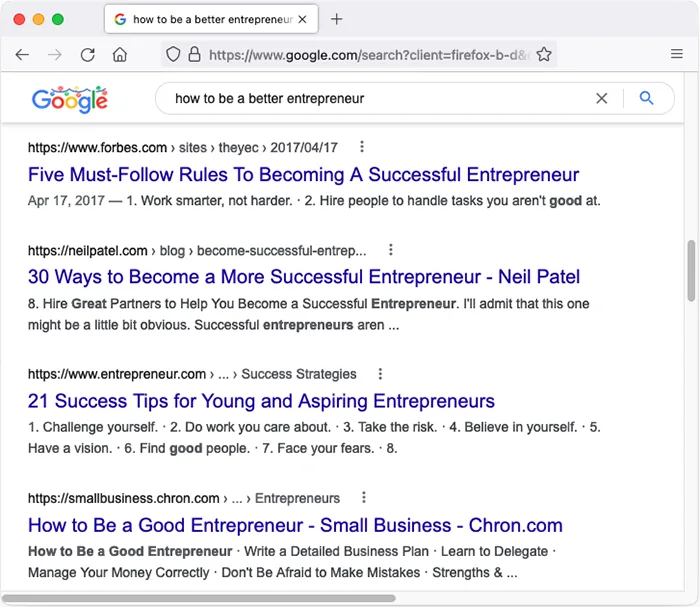
But that barely scratches the surface of what you should be learning in order to be a better entrepreneur. A book about management or leadership will contain hundreds of pages of valuable information, structured in an easily understandable manner and with a lot more context, which will help you better understand the topic than a couple of bullet points.
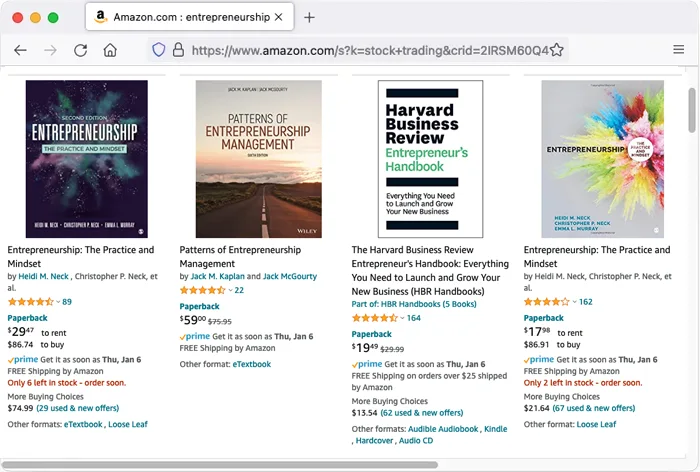
These books have been written by industry leaders, experts in their field, people who have dedicated their lives to the topic you’re researching and have spent hundreds of hours trying to condense their lifetime of experience into a couple hundred pages for your benefit.
Most articles you find online nowadays are written by professional content writers who research the topic you’re interested in for a couple of hours, read a couple of other materials for inspiration and spend another couple of hours actually writing the article that is supposed to make you turn your life around.
Online articles are usually optimized for readability, for better loading times, and for better positions in the search results of your preferred search engine.
There can’t even be a comparison between a book about leadership and an online search for “how to be a better leader”. How can it be? How can we compare a 200 pages book written by an expert to an online article written by a content writer who had a 3000 words limit for the article and had to follow strict optimization rules?
Can the Internet Replace Books?
That being said, one would tend to believe that books are the ultimate research tool and that the Internet can cover any subject only to a certain extent. That is not necessarily true though.
Again, the topic dictates the ideal research tool more than anything else.
For example, if you’re looking to learn how to cook better or simply want to try out new recipes from time to time, the Internet is probably the only place you will ever need to look from now on. The amount of information about cooking available online renders most cookbooks rather useless nowadays, especially if we take into account that the information is available online in different formats, which also includes video.
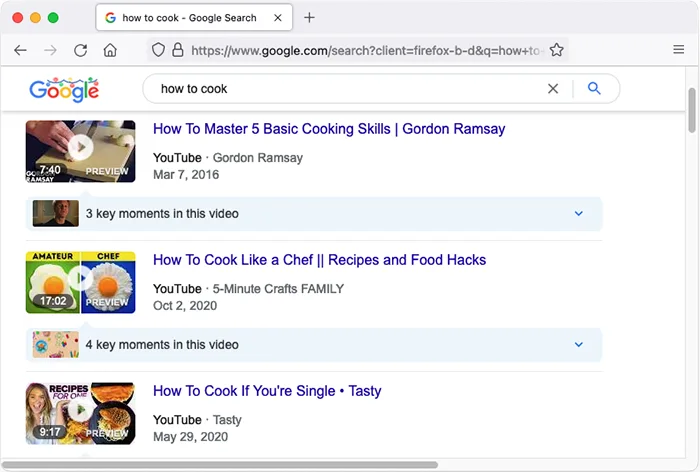
Why would you read how to cook a dish when you can watch that dish being cooked and learn this way?
On the other hand, the Internet won’t be as effective as a learning tool if you want to learn a more complex activity such as trading. The more complicated the skill you want to learn or the task you want to accomplish, the better off you are doing your research from actual books rather than the Internet.
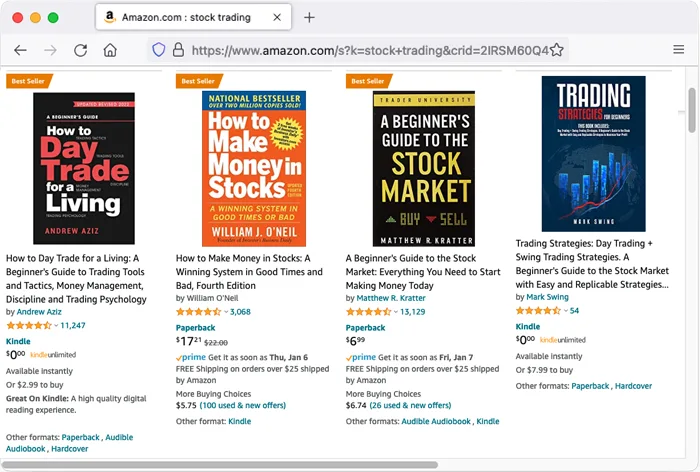
Then again, there are certain topics however that give you no choice, where research from books vs the Internet research is a battle that is lost by books before it even starts.
I am referring to novelty subjects such as cryptocurrencies, digital marketing, app development. Since these topics are rather recent and became popular as books decreased in popularity, chances are you’re better off searching for information / tutorials online than in a library, simply because very few (or none) books have been written about them.
As you can see, and as I mentioned earlier, there is no definitive answer for this “reading books vs Internet” debate when it comes to doing research. The topic is the most important and decisive factor.
Why Are Textbooks Better Than the Internet?
When it comes to school learning though, despite the obvious benefits of also having access to the Internet, learning from books or textbooks is essential. Why?
First of all, because all textbooks are written by professionals, not by ghost writers or content writers. If you really want to learn about statistics for example, the better choice is, obviously, to use a textbook. It is written by a statistics professor who spent his life learning and teaching this subject.
Another important aspect of textbooks and another reason why they are a much better learning tool in school is that they were structured in a specific way that allows you to better grasp the concepts and to understand and learn the subject.
Their authors feed you information progressively, building your knowledge from the bottom up, in a manner and a rhythm that has been optimized over decades of experience teaching that specific subject.
No online resource can replace that. The Internet can be a great supplement though. For those who want to learn more than what’s in the textbook, the Internet could be a good place to gather additional information.
Do We Learn More on the Internet Than From Books?
Well, nobody really knows. Over the past decades, many things shifted towards the online environment, including education. Even though most of the school learning is still done with textbooks, the ratio of Internet vs books research tends to favor the former.
If we take into consideration how often we open up a browser to search for information and compare it with how often each of us opens a book to get that same information, it’s probably safe to assume that we do most of our learning online.
That is not necessarily a good thing though. As I mentioned, we can’t always believe everything we read on the Internet and we don’t always find correct or accurate information about the topic we’re interested in. Moreover, the information about any topic we find online barely scratches the surface of that particular subject when compared to a book.
Bottom Line
All in all, there shouldn’t really be a battle of books vs the Internet. We believe that the best results when it comes to research is combining the two rather than sticking to only one. Combining book reading with online research is bound to yield the best results. And considering how easy that becomes when you use a reading tracker app like Basmo, why wouldn’t you?
Getting the best of both worlds is incredibly easy. Basmo is an app available both on iOS and Android devices, designed for book lovers who want to take their hobby further.
Basmo allows you to:
- Take notes while reading, which is especially useful whenever you read to learn rather than for pleasure. And since the app is already on your mobile device, combining the information you find online with what you find in the books becomes extremely easy.
- Scan book pages and save important information as notes or quotes, which again can make your life a lot easier when combining online research with book reading
- Create reading lists, which makes it a lot easier to line up all the books you want to read, in the order you want or have to read them
- Analyze your time spent reading, raising your awareness in regards to your reading habits and reading speed
- Set reading goals, a schedule and reminders, allowing you to become a more organized and efficient reader, regardless whether you do it for learning or for pleasure



